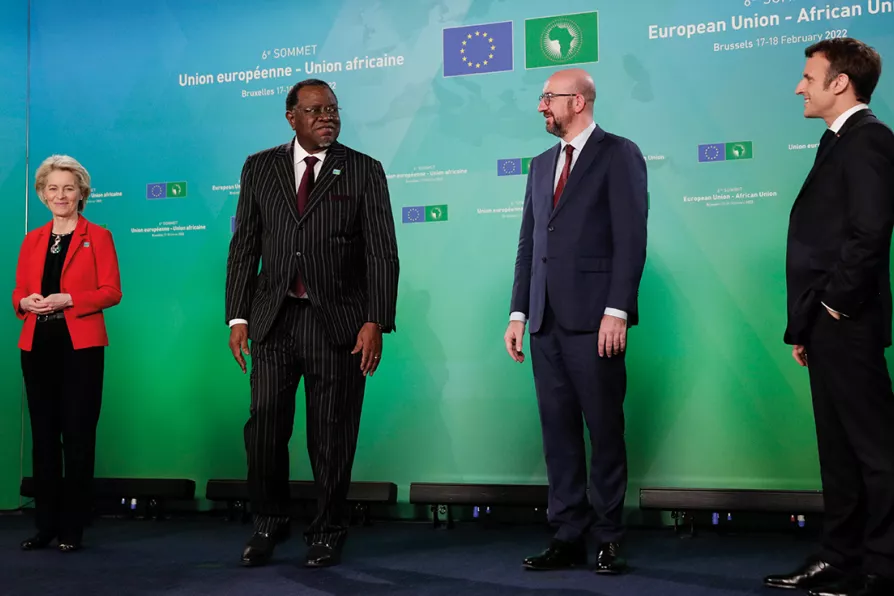As tens of thousands return to the streets for the first national Palestine march of 2026, this movement refuses to be sidelined or silenced, says PETER LEARY

 Namibia President Hage G Geingob, second left, is welcomed by European Commission President Ursula von der Leyen, European Council President Charles Michel and French President Emmanuel Macron during the EU Africa summit at the European Council
Namibia President Hage G Geingob, second left, is welcomed by European Commission President Ursula von der Leyen, European Council President Charles Michel and French President Emmanuel Macron during the EU Africa summit at the European Council
AS THE summit between the African Union and European Union (EU-AU summit) came to a close on February 18, the EU’s dedication to ensuring equitable access to Covid-19 products remained murky.
While Ursula von der Leyen, president of the European Commission, stated that the two unions had had a very constructive discussion on the Trade-Related Aspects of Intellectual Property Rights (TRIPS) waiver, the meeting resulted in little more than a tepid statement and a new deadline for reaching an agreement on intellectual property rights during the pandemic. Von der Leyen also stated: “We share the same goal. We have different ways to reach that goal.”
In reality, it would seem the AU and the EU have very different goals. While delegates from different African countries made a point of supporting a suspension of intellectual property rights on key Covid-19 products, EU politicians continue to focus their energies on postponing the TRIPS waiver as much as possible and protecting the profits of pharmaceutical companies based in the global North.

US tariffs have had Von der Leyen bowing in submission, while comments from the former European Central Bank leader call for more European political integration and less individual state sovereignty. All this adds up to more pain and austerity ahead, argues NICK WRIGHT

The ongoing floods in Pakistan could have been largely prevented, writes ABDUL RAHMAN

In the first half of a two-part article, PETER MERTENS looks at how Nato’s €800 billion ‘Readiness 2030’ plan serves Washington’s pivot to the Pacific, forcing Europeans to dismantle social security and slash pensions to fund it











